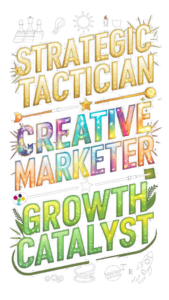
In the world of B2B marketing, it’s easy to get caught up in metrics, features, and ROI. But after years of experience across various industries, I’ve learned that even in the most technical fields, storytelling remains a powerful tool. Here’s why storytelling matters in B2B marketing and how you can leverage it effectively:
1. Emotions Drive Decisions, Even in Business
While B2B decisions are often viewed as purely rational, the truth is that emotions play a significant role. A compelling story can:
- Create an emotional connection with your brand
- Make complex products or services more relatable
- Differentiate you from competitors
Remember, behind every business decision is a human being.
2. Stories Make Your Brand Memorable
In a sea of similar products and services, stories help your brand stand out. Use storytelling to:
- Highlight your company’s journey and values
- Showcase customer success stories
- Illustrate complex concepts through relatable narratives
A well-told story can stick in a prospect’s mind long after they’ve forgotten a list of features.
3. Storytelling Builds Trust
Trust is crucial in B2B relationships, and storytelling can help build it. Use stories to:
- Demonstrate your expertise and experience
- Show how you’ve solved problems for other clients
- Communicate your company’s vision and mission
By sharing authentic stories, you’re inviting potential clients to be part of your journey.
4. How to Craft Compelling B2B Stories
- Start with your ‘Why’: Share your company’s purpose and values
- Focus on the human element: Highlight the people behind your brand and the clients you’ve helped
- Use data to support your story: Combine emotional appeal with hard facts
- Be authentic: Don’t exaggerate or embellish; honesty resonates best in B2B
- Use multiple formats: Written case studies, video testimonials, and infographics can all tell your story
5. Integrate Storytelling Across Your Marketing Channels
- Website: Use your ‘About Us’ page to share your company’s story
- Content Marketing: Create blog posts and whitepapers that tell stories about industry trends and solutions
- Social Media: Share behind-the-scenes glimpses and employee stories
- Sales Presentations: Open with a relevant anecdote instead of diving straight into features
Remember, good B2B storytelling isn’t about crafting fiction. It’s about presenting your authentic brand narrative in a way that resonates with your audience. By mastering the art of storytelling, you can create deeper connections with your B2B clients and stand out in a crowded marketplace.
Have you used storytelling in your B2B marketing efforts? What challenges have you faced? Share your experiences in the comments – I’d love to hear your story!










